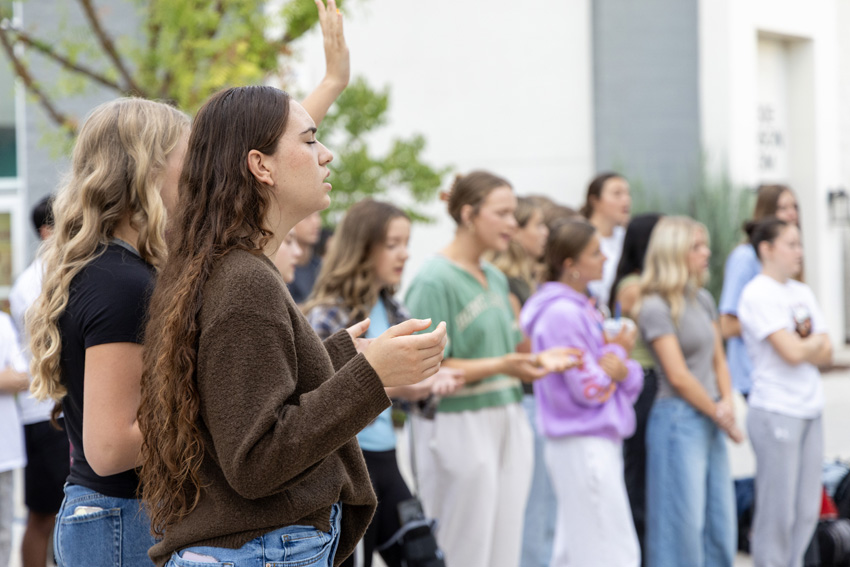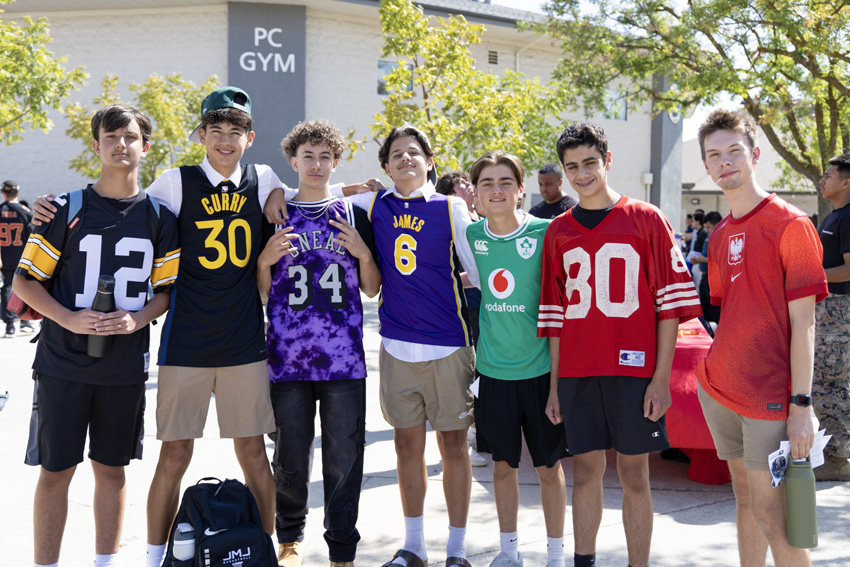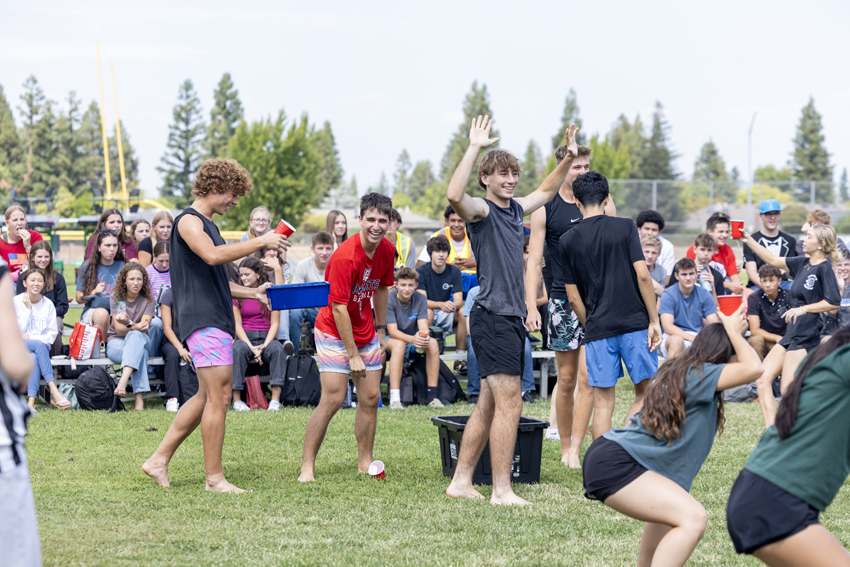Students travelled to California State University (CSU), Fresno for the first day of the 30th annual Fresno County Academic Decathlon Competition, Jan. 28.
Under the direction of coach Molly Sargent, FC’s seven-man, Division 3 team was among the dozens of local high schools that participated in the event. Staged during two separate weekends — the team will be tested again on Feb. 4 — Academic Decathlon (AcaDec) each year draws hundreds of students from and around the Fresno area to take part in a scholastic competition.
The AcaDec curriculum, which this year focused on the Age of Imperialism, evaluates students’ knowledge and abilities in 10 categories: Essay, Interview and Speech make up the “subjectives,” while Art, Economics, Language and Literature, Mathematics, Music, Science and Super Quiz (social science) comprise the “objectives.”
The first day of competition tests proficiency in the subjectives. Individually, each student is required to give both a prepared and impromptu speech, as well as interview, for a panel of judges. Additionally, students were given 50 minutes to write a response to a subject question from either their Language and Literature — which this year focused on Joseph Conrad’s Heart of Darkness — or Super Quiz material.
Though generally seen as the less-challenging of the two competition days, many find the prospect of public-speaking nerve-raking, and may react in such a way that they ultimately lose points. According to Sargent, who has coached AcaDec for 13 years, this was not the case with her team, as each member seemed prepared, collected and confident.
“My main concern [with the first day] is that a student will forget their speech and freak out when they’re giving it, because it’s very disconcerting when you’re expecting one reaction and you get another from the judges,” Sargent said. “It can cause students to really have a meltdown. It doesn’t sound like anybody had any sort of experience close to that, so that — to me — is a success. After hearing the speeches and everyone’s responses to how they felt they did, I think we should see some gold and silver [medals].
An AcaDec team consists of three subunits, each containing up to three students. The varsity group includes C-average students, scholastic consists of B-averages and honors is home to the A-averages.
As the majority of FC’s team consists of newcomers, many were unsure of how each category of competition would play out. Senior Kendall Wheeler, for instance, found an obstacle during her interview, which made what she thought would be the simplest event of the day into the most difficult.
“I expected the interview to be one of the easiest parts of the day, however, the speeches were the easiest and the interview was just so not what I expected,” Wheeler said. “It turned out to be extremely awkward since my interviewers were not talkative; I felt like I was telling them things and they were not responsive at all. It wasn’t enjoyable.”
Perhaps the most demanding situation was presented to sophomore Jimmy Chang who, in addition to being a first-year, is also the only foreign-exchange student on the FC team. Despite the disadvantage of English being a second language, Chang still felt optimistic about the outcome of his speech and interview.
“I think I did pretty well,” Chang said. “When it came to the reading part, that was kind of hard, and sometimes I couldn’t understand some of the questions I was asked. But I still think I did really well on the speech and interview. I didn’t expect to actually make the judges laugh.”
In addition to the months of preparation they had already underwent, the FC team also used a full, seven-hour school day in order to practice speech and interview skills. Sargent has, in fact, made this a tradition, and invites her students over each year the day before they go to compete.
“I think those days are the most important thing we do all year,” Sargent said. “Having the concentrated time together, to really focus on one or two things, is really different than, at the end of the day, coming into my classroom … When you’re at my house for seven hours straight, I think it’s really helpful, especially when you do it the day before because everybody has an added sense of urgency, and so they’re a little more focused and more motivated.”
As one of the few AcaDec veterans, senior Zachary Diaz de la Cuesta put the advantage of this time to his use, and ended up feeling better equipped for his impromptu speech and interview, two areas where he had felt weak in years past.
“I think the impromptu practice definitely helped, though, like last year, my impromptu speech was under in time,” Diaz de la Cuesta said. “We should have practiced our essay-writing skills more, but I felt very prepared for the interview. I think I did well on the interview, much better than the prior two years.”
After seeing how they fared during the first day of competition, Diaz de la Cuesta is confident that his team will improve their scores from last year.
“To be honest, during our practice I was a bit concerned about some of the members based off of our practice tests and some of the issues Mrs. Sargent was concerned about with speeches,” Diaz de la Cuesta said. “But, after what everybody said when they returned from their speech and interview, I’m fairly confident that we did well and that no one had any major problems. If we focus on our testing this week, then, judging from Saturday, we’re on track to do better than last year.”
The FC AcaDec team will next be tested on the objectives at Glacier Point Middle School, Feb. 4. Following these seven exams, the public is invited to attend the Quiz Bowl, a game show-like event where students from the varsity, scholastic and honors groups are asked 10 questions pertaining to the year’s material.
For more information on AcaDec, read the Dec. 2, 2011 article, Age of Imperialism seizes AcaDec theme, or the Feb. 5, 2011 article, AcaDec competes in Super Quiz (41 PHOTOS).






